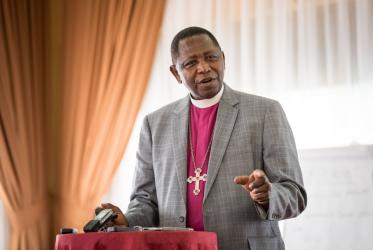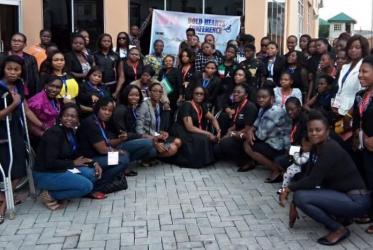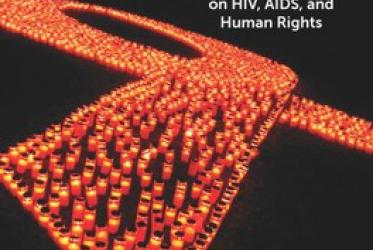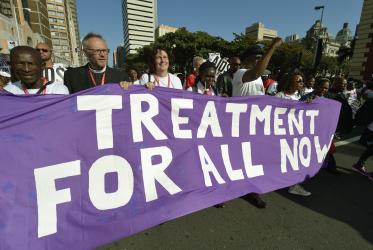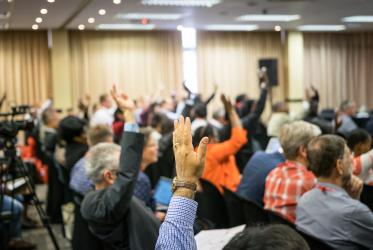Displaying 81 - 100 of 173
06 September 2017
In Argentina, stirring journey for human rights continues
01 September 2017
G7 must address famine
22 May 2017
Youth engagement fundamental to HIV response
18 April 2017
“It’s time to be brave, to form diverse partnerships”
02 March 2017
“Health and healing for all people, that is the challenge”
28 February 2017
WCC Blue Community implements water changes in the Ecumenical Centre
16 February 2017
WCC Executive Committee issues statement on climate justice
25 November 2016
WCC book featured in UN discussion on gender, religions and health
16 September 2016
AIDS 2016: Coverage of faith response to HIV
22 July 2016
Children are being let down over HIV care
17 July 2016
